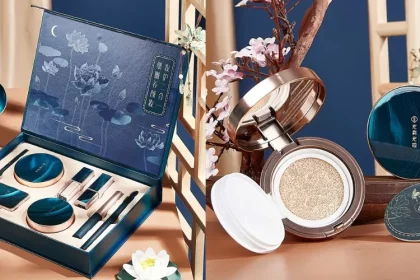Self care is a vital part of our overall health and wellness, but it’s often overlooked when it comes to our sexual and mental wellbeing. Taking the time to invest in yourself and your relationships can be incredibly rewarding and beneficial.
Whether it’s taking a break from social media, engaging in self-care activities, or exploring your sexuality in a safe and healthy way, there are many ways to practice self care for your sexual and mental wellness. By doing so, you’ll be able to gain insight into yourself, have greater confidence, and improve your relationships.
So, if you’re looking for ways to practice self care for your sexual and mental wellness, look no further. Here are some simple tips to get you started.
1. What is self care?
Self care is the practice of taking care of your mental and physical health. It involves looking after your emotional, social, spiritual, and financial needs. If you don’t take care of yourself, you risk burning out and experiencing emotional and mental health issues. Self care is important for everyone, but it’s especially important for people in relationships, such as romantic relationships and friendships.
When you have good self-esteem and self-confidence, you are much less likely to let others affect you in a negative way. When you know what you want, you are better able to create close, healthy relationships with others. Self-care is also important for your sexual health.
You will have a much easier time exploring your sexuality when you feel cared for and are in a positive relationship with yourself. You can also reduce your risk of contracting STIs when you practice self-care because you are more likely to use protection.
2. Why is it important to practice self care for sexual and mental wellness?
Healthy sexual and mental health is important for everyday life. It plays a role in everything from your relationships with others to your career. Having good sexual and mental health, however, may also help you in times of crisis. Sexual and mental health issues can occur after a trauma, such as sexual assault.
These issues can cause you to avoid certain sexual activities and become less interested in sex. This, in turn, can negatively affect your relationships. However, if you practice self care for your sexual and mental wellness, you can better handle these issues.
You may be able to engage in the sexual activities you want and regain your sexual interest. This is why it’s important to practice self care for your sexual and mental health.
3. Taking a break from social media
Social media can have many benefits, especially when used in moderation. However, if you are feeling stressed or anxious, it may not be the best outlet for you. If you notice that you are feeling extra negative emotions when you use social media, consider taking a break. This can help you distance yourself from the negative aspects of social media.
When you take a break from social media, you can also reduce the amount of time you spend online. This can help you avoid feelings of FOMO and instead focus on self-care activities. You can take a break from social media as often as you’d like. You can also take different types of breaks if it’s not the right fit for you at the moment.
4. Engaging in self-care activities
Engaging in self-care activities is another way to practice self care for your sexual and mental wellness. Self-care activities can help you reduce daily stress, improve your mood, and increase your self-esteem. They can also help you calm down and destress after an anxiety-inducing situation.
You can engage in self-care activities, such as going for a walk in nature, listening to soothing music, practicing yoga, reading a book, or doing a hobby that you enjoy. There are many ways to practice self-care activities. You can also try out new activities to discover new interests. This can help you gain a new perspective and learn more about yourself.
5. Exploring your sexuality in a safe and healthy way
Sexual exploration is a great way to practice self care for your sexual wellness. Sexual exploration can include different activities, such as trying new sexual techniques, using sex toys, practicing BDSM, using fantasies, or using different kinks or fetishes. Doing so can help you gain a better understanding of your sexuality and what you enjoy. This may also increase your sexual interest and desire, which can improve your overall relationships.
When you feel safe and in control while exploring your sexuality, you can also reduce your risk of STIs and feel more confident. If you are interested in trying something new, make sure that you are doing it in a safe way. This includes getting tested for STIs, being honest with your partner(s), and respecting your partner’s boundaries.
You can also talk with your partner(s) to make sure they feel safe and comfortable. Partnering up with someone who is also interested in sexual exploration may also help you feel more confident about trying new things.
6. Understanding your boundaries
Your boundaries are what you need or don’t need in a relationship. Understanding your boundaries can help you feel more confident and in control of your relationships. You can learn more about your boundaries by reflecting on past experiences and setting boundaries for new situations. For example, if you had a bad experience with a partner pressuring you to have sex, you may decide that you need a partner who respects your decision about having sex.
If you feel like you don’t know your boundaries, engage in self care activities that help you calm down, destress, and relax. This can make it easier to explore your boundaries. Once you know your boundaries, you can confidently stick to them. This can lead to healthier relationships and help you avoid feeling pressured or stressed out by others.
7. Showing yourself compassion
Self-compassion is when you treat yourself as you would a friend or a loved one. This means that you also acknowledge your strengths and weaknesses. You can show yourself compassion by practicing self-compassion activities. You can journal about your day, spend time in nature, or meditate.
You can also do something that you enjoy, such as watching a movie, painting, or baking. Doing these activities can help you reduce stress, boost self-esteem, and feel more relaxed. They can also help you gain a new perspective and a more positive outlook on life.
8. Building better relationships
When you practice self care, you can improve your relationships by being more confident and relaxed. You can also communicate better by making sure that you are comfortable with your boundaries and desires. This, in turn, can help you build better relationships with friends, family, and romantic partners.
If you’re in a relationship, you can also help your partner feel more comfortable by communicating your boundaries. You can let your partner know when you feel pressured and when you need space. Doing so can help you and your partner have a healthier relationship.
9. Getting professional help
If you are struggling with sexual and mental health, you may want to consider getting professional help. This can be helpful if you feel like you have tried all of the above tips and are still struggling. You can seek professional help at a therapist’s office, online, or through your school’s health services. If you choose to visit a therapist’s office, make sure to take some time to explore your options.
You can do this by visiting some offices and talking with the therapists you meet. This can help you to find a therapist that is a good fit for you. Therapists are trained to help you navigate sexual and mental health issues. They can also provide you with a safe space to explore your thoughts, feelings, and experiences.
Therapy can be a great way to learn more about yourself and your relationships. It can also help you develop healthier coping skills and strategies for dealing with daily life.
Conclusion
Self care is important for everyone, but it’s especially important for people in relationships, such as romantic relationships and friendships. When you take the time to invest in yourself and your relationships, you can be healthier and happier. Self care can help you reduce daily stress, improve your mood, and increase your self-esteem.
It can also help you calm down and destress after an anxiety-inducing situation. When you practice self care, you can improve your relationships by being more confident and relaxed. You can also communicate better and build better relationships with friends, family, and romantic partners.

















